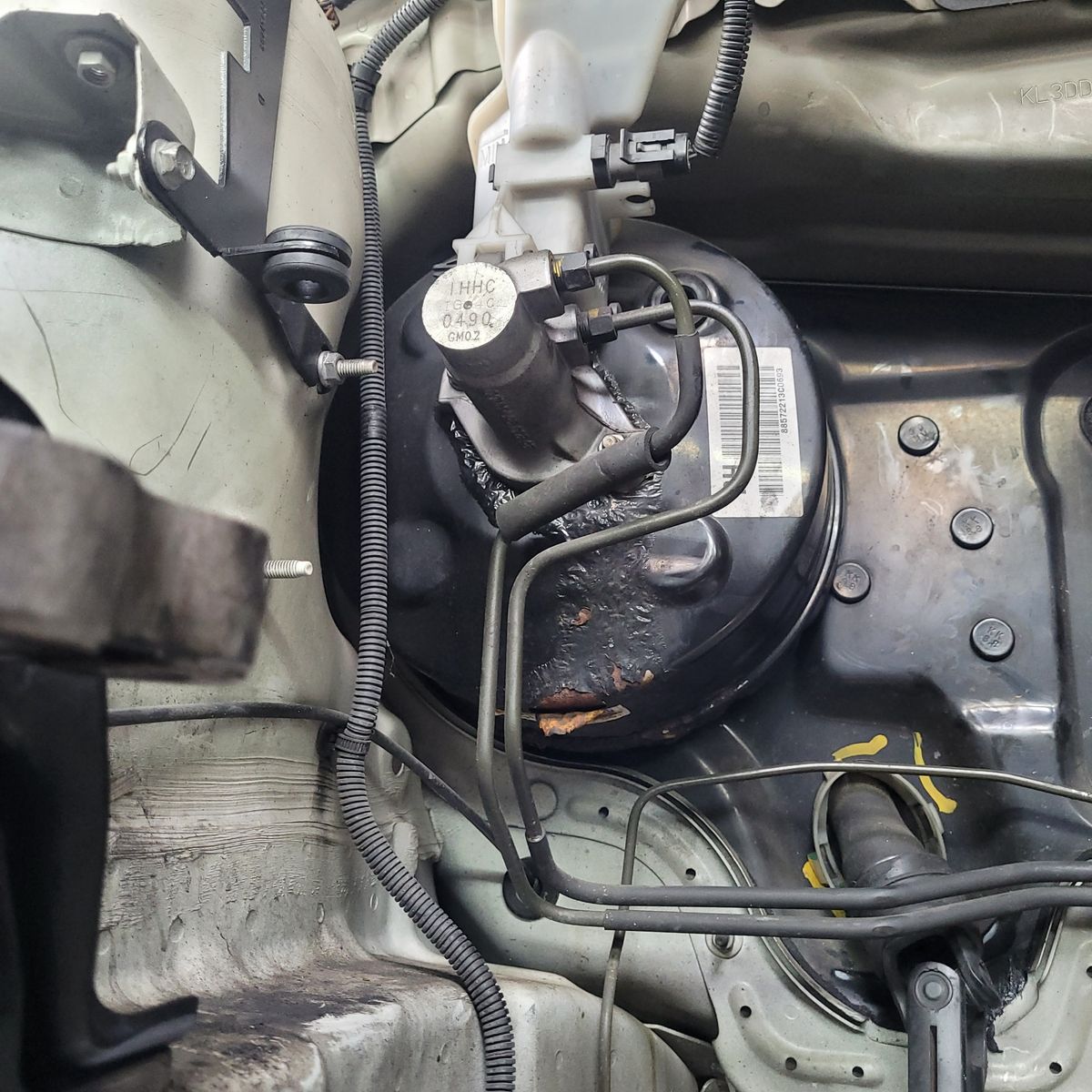What does the brake booster do?
The brake booster is a component that enhances the hydraulic effects of a vehicle’s braking system. This makes it easier for the driver to press the brake pedal down allowing for improved vehicle braking.
The brake booster has a chamber which contains a vacuum which on the majority of cars comes from the engines intake manifold (direct injection engines use a vacuum pump). When the brake pedal is depressed this vacuum is used to make it easier for the driver to press the brake pedal down, otherwise, the driver would struggle to press the brake pedal hard enough to stop the vehicle.
Direct Injection engines generally don’t get their brake vacuum from the intake manifold, instead, they create their own vacuum from a vacuum pump which has a vacuum pressure sensor attached to it. This way if the vacuum pump fails, which means your brakes will suddenly stop working properly, a light on the dash is instantly turned on to warn you.
What causes faults in the brake booster?
By far the most common brakes boosters are fully mechanical, meaning they have no electrical or electronic controls or sensors. There are several components that can fail in a brake booster system. These include:
-
The brake booster vacuum chamber or brake booster vacuum diaphragm leaks
-
The vacuum line between the brake booster and the intake manifold
-
The one way valve in the vacuum line between the brake booster and the intake manifold
-
Also for “direct injection engines” the vacuum pump itself can fail
-
Also for “direct injection engines” the electrical control circuit can fail
What are the symptoms of a damaged brake booster vacuum pump?
Brake pedal feels harder – the brake booster makes it easier for you to press the brake pedal down. If it develops a vacuum leak in any of the booster vacuum chamber, the vacuum hose between the intake manifold and brake booster or brake booster vacuum diaphragm leaks then you will notice that you have to press much harder on the brake pedal than you used to for the car to stop.
If you only have a small vacuum leak you may notice that the first time you apply the brakes feels OK, but if you need to brake again shortly afterwards the brake pedal feels much harder to push down
Obviously, these are very dangerous symptoms to have, and we recommend you take your vehicle to your trusted mechanic as soon as possible.
Brakes are less responsive – Your vehicle may take longer to stop when the brakes are applied. This can cause safety hazards so we recommend that you get your vehicle fixed as soon as possible.
Loud hissing noise – This can be caused by a vacuum leak in the lines that supply your brake booster with air from the intake manifold.
Engine Idles differently when brake pedal depressed – this could indicate an issue with the vacuum supply to your brake booster, or possibly extra air entering the intake manifold when the brake pedal is depressed.
Please note any of the above symptoms will cause your vehicle to fail a Warrant of Fitness (WoF).
Brake Booster Vacuum Pump Replacement in Hamilton
If your vehicle is producing any of the symptoms above, we are able to help you!
Getting your brake booster and/or vacuum pump rapider or replaced will allow for improved braking with increased responsiveness.
For fast, honest, accurate diagnosis and reliable brake repairs in Hamilton, bring your vehicle to Grimmer Motors today.
Please Note – we don’t generally stock or supply just “parts only” for this service. We are a general automotive repair workshop. If you are able to bring your vehicle to us, we can diagnose the problem, find and fit the necessary parts, or organise the appropriate service for you.

